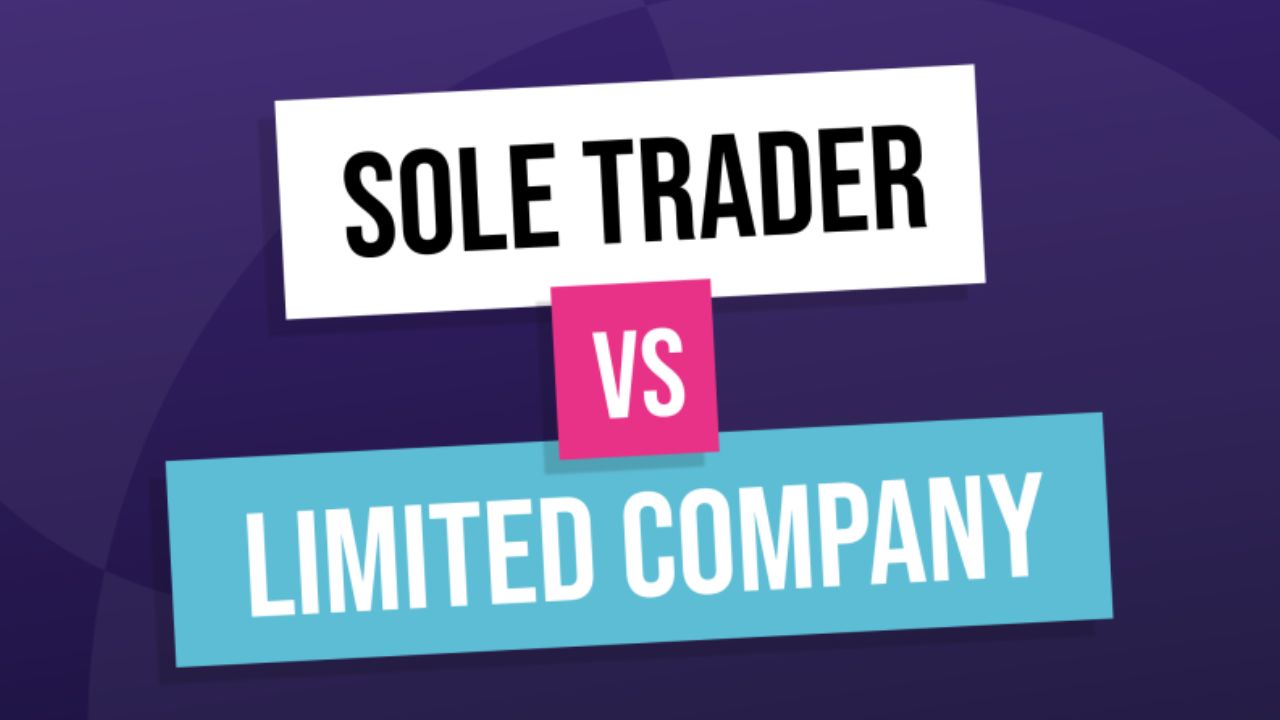
Sole Trader vs Limited Company | Pros & Cons
For starting a business, the first and primary task is to determine the form of the business entity. For small businesses, the best possible choices appear to be either being a sole trader or form a limited company. Before proceeding further it's essential to know what do we mean by sole trader and company. A sole trader is an individual who is the sole owner of a business, with the right to retain all profits after deducting tax but also responsible for all losses. A company is an entity separate from its owner. Whatever is done in the company is done in the name of the company. The directors manage the company but the company is financed by shareholders.
Now the problem at hand here is whether to opt for being Self-employed or to establish a Company. It is quite surely a difficult decision to arrive at. There are very few parameters to resolve this situation. Some of them have been listed in this article to make a decision on entity that suits one's business requirements.
Incorporation
Starting with Incorporation formalities, it can be stated that operation as self-employed is the most convenient way to start a business. All one has to do is to notify HMRC of 'self-employed' status. This can be achieved online. There are no other bureaucratic formalities to be fulfilled and the business can start operating immediately. Click here to learn about setting up as a sole trader.
Conversely, the process of incorporating a company is relatively a bit complicated. The company must be registered with Companies House, the directors must be appointed and some other legal formalities and administrative tasks must be done before the business of the company begins. However, the reality is that it is comparatively easier to incorporate a company in the UK than elsewhere across the globe. Click here to learn how a company is formed.
Naming
Once a company is incorporated with a specific name, it is its identity, and therefore selecting the proper company name is absolutely necessary. No other person can decide to incorporate another company with the same or near-same name as of the incorporated company because it is legally protected at incorporation. But no protection is given to a sole trader. Any person may decide to continue business in a name identical to or resembling an already existing business. This usually involves the transfer of unknown customers of the initial business, harm to the business reputation, etc.
Legal requirements
A sole trader is required to simply do a self-assessment and submit a self-assessment return annually. A company must undertake various administrative tasks such as keeping numerous registers, submission of annual accounts with Companies House as well as HMRC, submission of Confirmation Statement to Companies House, apart from submission of corporate tax return to HMRC, etc.
Financing need
Finance is the blood of any business, particularly a new one, and finding simple sources of funds is hard for all new businesses. The limited companies gain an advantage over sole traders in such areas due to the limited liability feature attached to them. Also, as most of the data of a company is in the public domain such as annual accounts, details of directors, etc. financers can easily fetch data on it and verify its credibility. Contrarily, sole traders would take enough time to prove their credibility in the market.
Annual accounts
The above fact forces us to another advantage of being a sole trader. As the sole trader has to simply submit a self-assessment return maintaining a proper record of your receipts, expenses, and invoices from day one would meet the accounting requirement. But as a company has to submit annual accounts with HMRC and Companies House, a company's accounting compliance is slightly intricate compared to that of a sole trader.
Tax incidence
One of the most notable strengths of the limited company vis-a-vis the sole trader is that it is a more tax-efficient type of business than the latter. This is on account of the corporation tax rate being 19% and likely to be further lowered to 17% in the near term future. On the other hand, the self-assessment basic rate for a sole trader is 20% which goes to a higher rate of 40% and up to an additional rate of 45%. This difference in the tax rates makes the limited company an attractive option.
It has been a global tradition to maintain the corporate tax rates lower for the sake of bringing in foreign investment. Thus, it can be assumed that the corporate tax rate could further decrease in the future.
Separate legal entity
It's the special characteristic of a limited company which provides it with an additional sense of security. A company possesses a separate identity from its owners. It can keep properties in its own names, can sue and can be sued. It is then company which is sued in case of a court case. It's very hard under the law of UK for anyone to sue a director personally on account of wrong doings of a company. But, in the case of a sole trader, if there is a legal dispute, he/she will be held personally liable for the consequences of the same.
In the case of a company, the proprietors (i.e. shareholders) are liable to pay any of the company's debts, but only to the extent of any unpaid amount on their shares of the company.
Limited liability
But in the case of a sole trader, the owner and the company are not legally separate. If the company goes out of business for whatever reason, and there is an outstanding debt, then he/she will be personally liable for this and must pay off the debt. This can sometimes necessitate bankruptcy for the sole trader.
Transfer of ownership
In the case of a firm, the ownership may be shifted from one individual to another by the simple transfer of shares. In the case of a sole trader, although the business can be sold entirely, the purchaser cannot avail the credibility and goodwill established by the earlier owner. Usually, he'll have to start from scratch in order to make its qualitative aspects powerful once again.
Perception
A Limited Company's details are readily accessible in the public domain. Other companies can easily deal with companies because they can always conduct a background check from its details available prior to entering into any agreement. Companies are in a way thought of as honest and more trustworthy bodies to transact with. This advantage is negated in the case of a sole trader.
Goodwill
One of the strongest contributing factors to the goodwill of any business is its number of years of being in existence. For a company, as we are aware "Men may come, Men may go, but the company fails to die." The longer the company is, the better is its goodwill. Example: Marks & Spencer which proudly declares "established since 1884".
But in case of a sole trader, the goodwill is lost as soon as the individual who was responsible for that business is gone or left that business for any reason.



